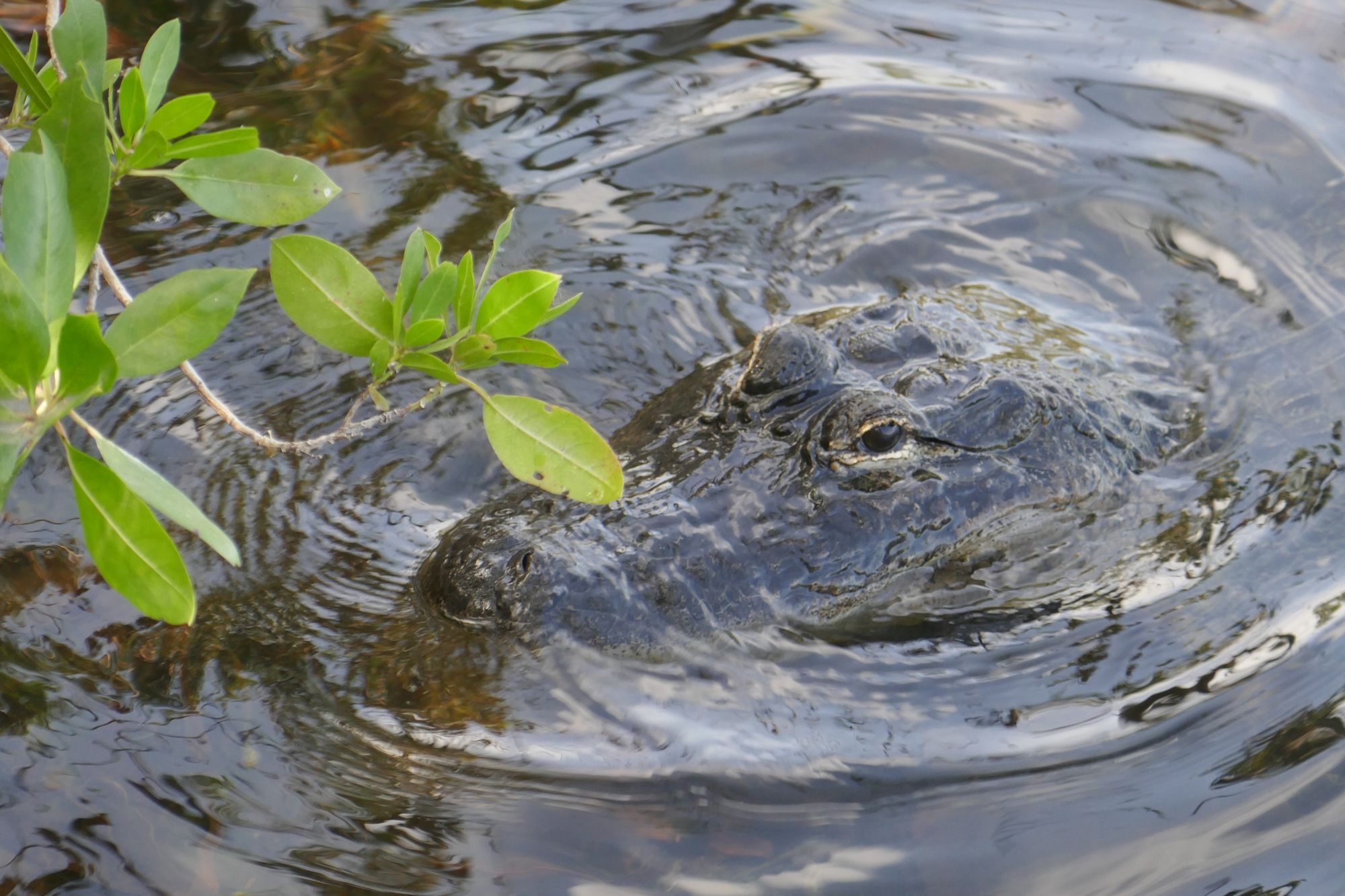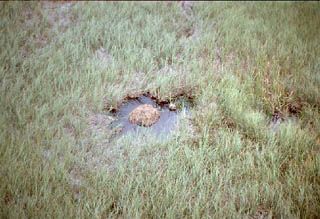
We’re now in the middle of the dry season here in Florida. The average rainfall for January in Lee County is only two inches. We see the effects of this everywhere. The water in ponds recedes and their banks expand. The cypress trees lose their needles and animals shift their behavior to correspond to the changing environment. This is also true for one of the state’s signature animals: the American alligator, Alligator mississippiensis.
The vast majority of an alligator’s diet is aquatic (fish, crustaceans, turtles, amphibians) or terrestrial animals that venture near the water. However, as the waters dry up each year, their foraging habitat decreases. However, alligators have developed a way of mitigating this problem. By clearing muck and vegetation from natural depressions in the limestone bedrock of our state (mentioned here), they create an area that retains water year-round. These ‘alligator holes’ are an important habitat for a wide variety of animals until the rains return.

Of course, gators don’t do this out the goodness of their hearts. They get quite a lot for the effort they put in. It is a source of water and food that they can access when such things are scarce. Also, the holes help their prey species survive those periods as well, ensuring that they will still exist in the future.
Even during the dry season, you can still see gators in populated areas. The largest reason for this is that we have created many artificial ponds where we live (when I call them ‘artificial’ it simply means that there was not originally a body of water there). Many of these were created as water hazards on golf courses. This is why many of the viral videos of gators are from those places.
I understand that alligators can be scary. They’re prehistoric-looking and can grow quite large (up to 15ft long or more). Their bite force is one of the strongest measured of any living animal. However, they play an incredibly important in maintaining our wetland ecosystems here in Florida. The threat of alligators is minimal, averaging only 5 attacks on humans per year in the entire state over the last half-century plus and only 10% of those being fatal. Like any wild animal, respect them and give them their space.
Above all, don’t feed the gators. This will eventually make a gator associate humans with food, creating a nuisance animal that has to be trapped and euthanized. For this reason, feeding an alligator is illegal in Florida.